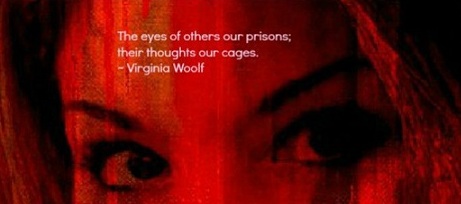I found this article about Lionel Shriver pretty interesting. She wrote We Need to Talk About Kevin, a daring, devastating book that won the Orange Prize, sold very well, and was made into a movie starring Tilda Swinton. The article reveals that her own agent and 30 publishers turned down Kevin, which surprises me not at all, because its subject is very unpleasant. The whole situation reminded me of a quote from Cliff Bleszinski, an icon in the video game industry who led design on Gears of War and many other efforts: "When your marketing guy and numbers guy and others are kind of confused about how to market and sell your game, double down on it. It means you have something unique." He was talking about Bioshock Infinite, and the full context is here, although there be spoilers. I read this quote a few weeks ago, and it's been in my head every couple of days ever since. I consider it great advice for all creative endeavors. Dare to do what the marketing department can't figure out. (Slaughterhouse-Five. The Hunger Games. Fight Club. Back to the Future.)
I was also reminded of a vague set of ideas that's been swirling around in my head for the last couple of years, since I read Cheryl Strayed's Sugar column that coined write like a motherfucker. One of the central questions of the column is how to be a successful woman writer without feeling defeated by the patriarchy before you even begin. Strayed replied that you do what Flannery O'Connor did; you do what Elizabeth Bishop did; you do what Mary Shelley did; you do what the Brontes and Austen and Dorothy Parker and Rebecca West and Elizabeth Barrett Browning and Adrienne Rich and LeGuin and DuMaurier and Anaïs Nin did. You write "so blazingly good you can't be framed." You just. keep. writing. better and better, until your gender is irrelevant.
The more I looked around, the more I saw women who did it anyway, either without considering the patriarchy's interest in watching them fail, or without caring. Women about whom sexist criticism looked like exactly what it was, because they were that blazingly good. I thought of this idea when I read Gilead, because Marilynne Robinson's prevalence as a writer doesn't seem to be affected by her gender, and I don't know that she has drawn her gender into her career at all. Maybe she's struggled with it and written about it, but I don't see that from where I sit, which seems like a good sign. Margaret Atwood is arguably Canada's greatest living writer, and I didn't make that phrase up out of my head, I've read it in article after article. She writes especially about women's issues most of the time, but that doesn't lessen her stature.
The thing I've been wondering to myself is whether you can - whether certain women do - conduct a career as a woman writer without considering the patriarchy at all. If you can just turn your head to the other side and write on, not thinking about the statistics, not thinking about the possibility that you've been turned down over and over because of your first name and not because of the quality of your work. Not wondering whether, if you took on the name George instead, you might get an inbox full of acceptances. If I pretend this is a world where I have thoroughly equal shot of getting into Harper's (although it is demonstrably untrue), will that world come to exist? Or does my writing have to be 75% better than George's for me to make it?
This always leads me to the question of whether a woman writer will find more success - and inner peace - by trying to pass or by being an exceptional woman writer. By which I mean - do you be Margaret Atwood, a feminist, the person who wrote The Handmaid's Tale, which does nothing if not draw attention to the problem? Or do you be George Eliot, who more or less kept her head down in order to be taken seriously? (If you're Deborah Copaken Kogan, you get tired of keeping your head down and go viral in The Nation.)
I'm not offering answers. But it strikes me that turning my head to the side has two effects: one is that it helps me concentrate on improving my work, instead of being depressed by counting and comparing bylines in the publications and anthologies I read (and oh, it is indeed depressing if you stop to notice, my friends). The other is that it makes me feel I'm betraying something essential by not paying attention and speaking out. If I don't take notice, if I don't speak up, that's less attention that will be paid to the inequality.
To be perfectly honest, I would rather not be shrill than speak up every single time I notice a problem. I took this picture a couple of weeks ago
and haven't posted it on Facebook or here yet (well...until now), because I thought maybe I'd said too much in general about the horrid, contradictory, destructive power of the beauty-industrial complex to defeat women in this country. I don't want to drive people away by constantly beating the same drum, especially when there isn't much to be done to fix it.
I'd rather just write.


No comments:
Post a Comment